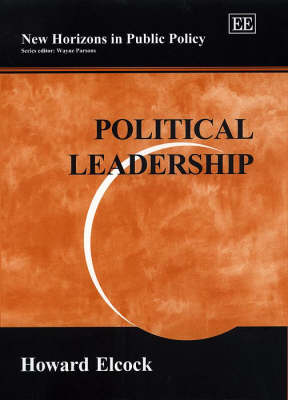New Horizons in Public Policy
1 total work
Political leadership is a concept central to understanding political processes and outcomes, yet its definition is elusive. Many disciplines have contributed to the study of leadership, including political theory, history, psychology and management studies. Political Leadership reviews the contributions of these disciplines along with a discussion of the work of classic authors such as Niccolo Machiavelli, Max Weber and Robert Michels.
Howard Elcock develops an account of the various governing, governance and allegiance roles political leaders play and discusses the devices by which their ability to lead effectively can be improved. He examines the processes of uncertainty reduction, increasing creativity and facilitation of collective learning. He concludes that the preoccupation with 'new public management' over the last twenty years has caused fundamental debates about political and social values to be neglected. Only a new focus on leaders and leadership, he argues, can correct this problem and provide guidance for politicians and officials in a world of increasingly rapid and unpredictable change.
As an eminently readable book, this will be welcomed by scholars of political science and history, public administration and management as well as anyone involved, or with an interest, in politics and government.
